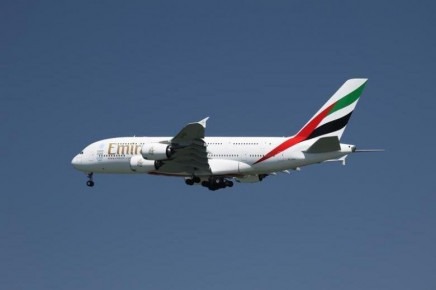
Follow WOWNEWS 24x7 on:
Updated: June 28, 2025 16:33

In a rare mid-air deviation triggered by severe weather, an Emirates Airlines flight en route from Islamabad to Dubai was forced to temporarily enter Indian airspace early Thursday morning. The incident, which occurred on June 27, 2025, highlights the growing operational challenges airlines face amid increasingly volatile weather patterns across South Asia.
Here’s a detailed look at what happened and why it matters.
Key Developments From The Incident
- Emirates flight EK-715 departed Islamabad around 4:30 am local time
- The aircraft encountered intense rainfall and limited visibility near Lahore
- To ensure passenger safety, the pilot diverted the flight slightly off its planned route
- The plane veered over Sialkot and Narowal, inadvertently entering Indian airspace near Amritsar
- The deviation was temporary and coordinated with air traffic control to avoid escalation
Why The Diversion Happened
According to aviation sources, the decision to alter course was made in real time due to:
- Heavy monsoon activity over northern Pakistan, particularly near Lahore
- Storm cells and low cloud cover that made the original flight path unsafe
- The need to maintain altitude and avoid turbulence while ensuring navigational safety
Such diversions, while uncommon, are not unprecedented and are typically resolved through standard airspace coordination protocols between neighboring countries.
Operational And Diplomatic Context
- The incident did not trigger any diplomatic friction, as it was weather-related and not a violation of airspace sovereignty
- Indian and Pakistani air traffic controllers reportedly maintained communication to ensure safe passage
- The aircraft re-entered Pakistani airspace shortly after conditions stabilized and continued on to Dubai without further incident
Broader Implications For Aviation
- The event underscores the increasing unpredictability of weather patterns affecting flight operations in the region
- Airlines are being urged to enhance real-time weather monitoring and route flexibility, especially during monsoon months
- It also highlights the importance of cross-border aviation coordination in managing emergencies and ensuring passenger safety
As climate volatility continues to reshape aviation logistics, such weather-induced diversions may become more frequent, demanding greater agility from airlines and airspace regulators alike.
Sources: The Express Tribune, Reuters, Tribune Pakistan, MSN India, Aviation Weather Center Reports June 2025



